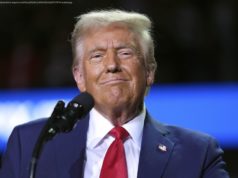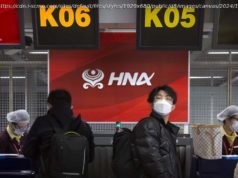Array
China and the United States are pursuing policies that increasingly put them at risk of conflict but, according to some experts, the United States does not currently have the will to follow through on the endeavor.
That was the consensus reached during a Sept. 7 discussion hosted by the American Enterprise Institute (AEI), a Washington-based think tank, which sought to examine the “coming conflict with China.”
“As things get tough, great powers have to take decisive actions,” said Michael Beckley, a senior fellow at AEI. “And those oftentimes bring them into greater conflict with other great powers.”
Beckley said that China, in this regard, was behaving in line with what might be expected of any nation in a similar position economic and political position. Rising powers are often faced with crises, he said, in which they could either attempt to risk exceptional action or face withering away.
“We’ve seen historically, when rising powers face these kinds of headwinds, they have two choices,” Beckley said.
“They can either sit back and do nothing and allow the new normal of slower growth and encirclement to play itself out. Or they can take decisive actions to try to rejuvenate their economies, beat back rivals, and try to accomplish longstanding national aims before it becomes too late.”
Hal Brands, a senior fellow at AEI, said that the multitude of crises in Sino-American relations were often compared to the concept of “Thucydides’ Trap,” a spiraling of tensions between a rising power and existing power that leads ultimately to war between them.






